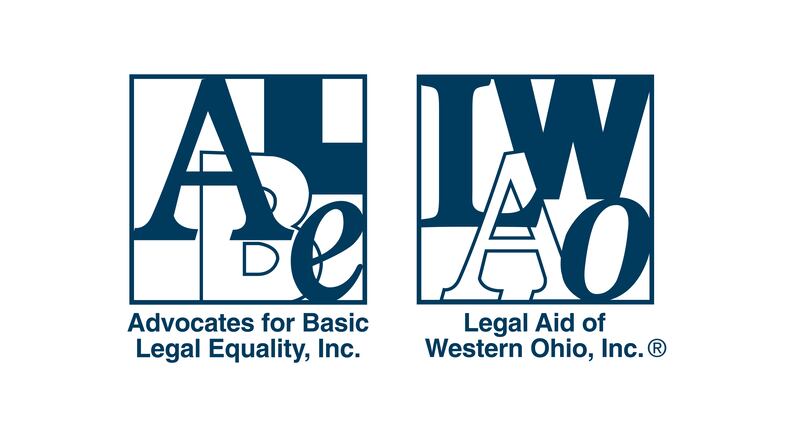They expect between a $800,000 to $1.2 million shortfall in funding by the end of this year due to the virus, said Karla Garrett Harshaw, ABLE’s director of development and communications.
“This could have a significant impact on our ability to serve people who need it most,” Garrett Harshaw said. “This epidemic is causing even more hardships for the most vulnerable in our population.”
In order to continue to get services to those in need, ABLE has started an emergency coronavirus fundraising drive.
Someone wishing to donate to the emergency fund can go to ABLE's website and click on the "get involved" button.
ABLE and Legal Aid of Western Ohio depend heavily on funding from court filing fees and Interest on Lawyer Trust Accounts, which is a way of raising money for for charitable purposes, like getting legal services to indigent people.
ABLE works to help those who otherwise might not be able to afford legal services for civil cases with protective orders and divorces for victims of domestic violence, preventing unlawful evictions, assisting with benefits and helping children receive an appropriate education.
ABLE and Legal Aid are also working to help protect people from various scams circulating because of the coronavirus.
“It’s important to continue providing services,” Garrett Harshaw said. “We identify with the phrase ‘Dayton strong.’ We pull together when times are tough and we help those in the community who wouldn’t have anywhere else to turn to.”
RELATED: Coronavirus causes uncertainty for those struggling to pay rent, mortgages
Garrett Harshaw said the work that ABLE does is especially important right now, as people continue to get evicted or are confined in their houses with someone who abuses them.
ABLE and Legal Aid of Western Ohio will also need funding after this major shut down.
Experts are predicting that evictions will surge after the threat of the coronavirus is over, Garrett Harshaw said.
“A variety of issues are coming up right now and we are concerned about the escalation of needs due to the coronavirus,” she said.
The organization covers 32 counties between Dayton and Toledo.
About the Author

